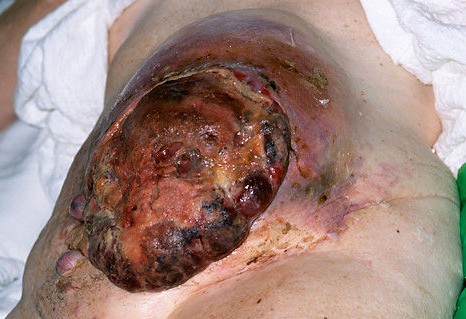What Is Endometrial Cancer?
Endometrial cancer is a type of cancer that attacks the endometrium or inner lining of the uterus. Women affected by this cancer will usually experience symptoms such as :
- The exit of blood from the vagina though not in the menstrual period.
- Pain in the pelvis.
- Pain during intercourse.
- The discharge of a watery pus or pus accompanied by blood from the vagina.
- The exit of blood from the vagina despite menopause.
- Stage one, cancer is still in the womb.
- Stage two, the cancer has spread to the cervix.
- Stage three, the cancer has spread to the outside of the uterus (usually just reaching the pelvic lymph nodes) but has not reached the bladder or colon.
- Stage four, the cancer has spread to the bladder, colon, or even already attack other body parts.
Causes of Endometrial Cancer
Experts still can not confirm what triggers the occurrence of this disease. However, the imbalance of progesterone and estrogen hormones in the female body is thought to be the most common cause of endometrial cancer. Progesterone levels are too low compared with estrogen levels that cause thickening of the lining of the uterus. If thickening continues, then cancer cells can grow over time.
Here are some factors that can increase a woman's risk of endometrial cancer, including:
- Be overweight (obese).
- It's entering the menopause.
- Experiencing menstruation at an early age or entering a slower menopause than women in general.
- Never been pregnant.
- Suffer from hereditary nonpolyposis colorectal cancer (HNPCC) syndrome.
- Underwent treatment with tamoxifen (hormone therapy therapy for breast cancer patients).
See a doctor if you often feel pain in the pelvic area, pain during sexual intercourse, and often remove blood or pus from the vagina (especially after entering the menopause). After the doctor collects information in the form of symptoms, personal and family medical history, the doctor will do some checks to confirm the diagnosis.
Some of the types of checks that doctors may do to diagnose endometrial cancer are:
- Examination of pelvic area (pelvis). This examination can be done only with the fingers to feel any abnormalities in the uterus and ovaries or can also be done with the help of a tool called speculum to see any abnormalities in the vagina and cervix.
- Hysteroscopy . In this examination the doctor will insert a hysteroscope or special device equipped with a small camera and light through the vagina into the uterus in order to see the endometrium and conditions in the womb.
- Transvaginal ultrasound. In this examination the doctor will use a special tool called transducer that can transmit ultrasound waves into the uterus through the vagina. Through the recording of the womb, doctors can see the texture and thickness of the endometrium.
- Biopsy . Through this method, the doctor will take tissue samples from the lining of the uterus, then examine it in the laboratory to detect the presence of cancer cells.
Endometrial Cancer Treatment
Treatment of endometrial cancer depends on the severity of the disease and the patient's own health condition. The following treatment options are available, including:
- Salpingo-oophorectomy surgery . This is one of the most common procedures performed in cases of endometrial cancer. In this procedure, the ovaries and fallopian tubes (fallopian tubes) will be removed.
- Hysterectomy Surgery . Just like surgical salpingo-oophorectomy, this procedure is also much lived by women with endometrial cancer. In surgery hysterectomy , the entire uterus will be removed.
- Chemotherapy . Through this method, doctors will provide drugs that can kill cancer cells. These medicines can be in pill form, the fluid inserted into the infusion solution.
- Radiation therapy. Just like chemotherapy, the purpose of radiation therapy is to destroy cancer cells, but by using high-energy jets. Radiation therapy is usually combined with other treatment methods, one of them with chemotherapy. If the cancer has spread, radiation therapy is usually combined with chemotherapy to reduce the risk of cancer recurrence. In addition, a combination of radiation therapy and chemotherapy will also be an option if the patient's condition is not possible to undergo surgery.
- Hormone therapy. Actually this method is rarely applied because it is not as effective as other treatment methods. Through hormone therapy, doctors will give drugs to lower estrogen levels or raise levels of the hormone progesterone to slow the growth of cancer cells.


0 Response to "What Is Endometrial Cancer?"
Post a Comment